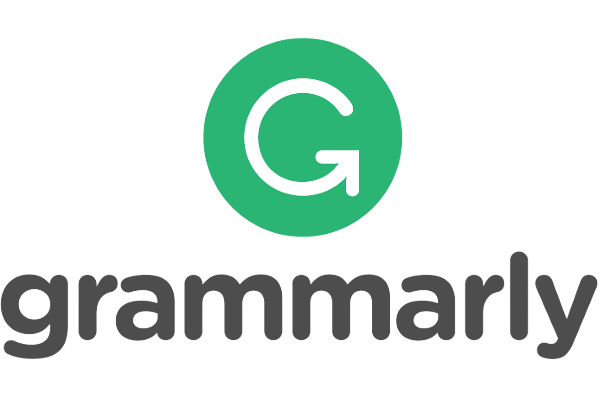Environmental Sustainable in Household Waste Management For Urban Resilience: Insight From Makassar City, Indonesia
DOI:
https://doi.org/10.62503/gr.v1i1.2Keywords:
Environmental-Sustainable, System Innovation Helix, Households Waste Management, Urban Resilience, IndonesiaAbstract
This study only focuses on a small aspect of environmental protection, namely proper household waste management for urban resilience in Makassar City, Indonesia. This study discusses how household waste in Makassar City can be converted into useful products and economic value that will reduce waste generation and maintain the preservation of densely populated urban environments in Makassar City, Indonesia. This study methodology is qualitative with a case study approach in looking at environmental degradation caused by an increase in household waste generation in Makassar City which has an impact on the environment and socio-economic activities of Makassar City community. The results of this study indicate that the development of environmental problems in household waste management in Makassar City is still experiencing problems. So in good governance, it is driven by the helix innovation system which involves various stakeholders to turn household waste into useful products with economic value. The helix innovation system as a solution to the problem of increasing household waste in Makassar City utilizes Incineration Technology and the Waste Bank and Composting Innovation Program for organic waste as environmental preservation for densely populated cities in Makassar City, Indonesia which involves community groups. Wet household organic waste is made into compost which can be used in plantations and livestock. Waste management in Makassar City is regulated in Makassar Mayor Regulation No. 4 of 2011 concerning Waste Management and Makassar Mayor Regulation No. 35 of 2018 concerning Policies and Strategies for Household Waste Management and Household Waste.
References
Abbondanza, M. N. M., & Souza, R. G. (2019). Estimating the generation of household e-waste in municipalities using primary data from surveys: A case study of Sao Jose dos Campos, Brazil. Waste Management, 85, 374-384. https://doi.org/10.1016/j.wasman.2018.12.040
Abdillah, A., Widianingsih, I., Buchari, R. A., Mustari, N., & Saleh, S. (2022). Governance and Quintuple Helix innovation model: Insights from the local government of East Luwu Regency, Indonesia. Frontiers in Climate, 4, 1012108.
Abdillah, A., Widianingsih, I., Buchari, R. A., & Nurasa, H. (2023). Implications of urban farming on urban resilience in Indonesia: Systematic literature review and research identification. Cogent Food & Agriculture, 9(1), 2216484.
Abrokwah, S., Ekumah, B., Adade, R., & Akuoko, I. S. G. (2021). Drivers of single-use plastic waste generation: lessons from packaged water consumers in Ghana. GeoJournal, 1-13. https://doi.org10.1007/s10708-021-10390-w
Akil, A. M., & Ho, C. S. (2014, February). Towards sustainable solid waste management: Investigating household participation in solid waste management. In IOP Conference Series: Earth and Environmental Science (Vol. 18, No. 1, p. 012163). IOP Publishing. 10.1088/1755-1315/18/1/012163
Andersson, C., & Stage, J. (2018). Direct and indirect effects of waste management policies on household waste behaviour: The case of Sweden. Waste management, 76, 19-27. https://doi.org/10.1016/j.wasman.2018.03.038
Barokah, A. A. N., & Muchlis, M. (2022). Akuntansi Lingkungan Berbasis Tabligh dalam Meningkatkan Pengelolaan Limbah Medis dan Tanggung Jawab Sosial (Studi pada Puskesmas Mamajang Makassar). Accounting, Accountability, and Organization System (AAOS) Journal, 4(1), 78-97. https://doi.org/10.47354/aaos.v4i1.424
Bassi, S. A., Christensen, T. H., & Damgaard, A. (2017). Environmental performance of household waste management in Europe-An example of 7 countries. Waste Management, 69, 545-557. https://doi.org/10.1016/j.wasman.2017.07.042
Bavani, M., & Phon, L. L. (2009). Using worms to reduce organic waste: DBKL to embark on a pilot project soon. Saturday Metro, 5. https://www.pressreader.com/Kota Makassar/the-star-Kota Makassar/20091123/282604553934729
Bayeh, E. (2016). The role of empowering women and achieving gender equality to the sustainable development of Ethiopia. Pacific Science Review B: Humanities and Social Sciences, 2(1), 37-42. https://doi.org/10.1016/j.psrb.2016.09.013
BPS. (2022). Badan Pusat Statistik Sulawesi Selatan. [online] available at https://sulsel.bps.go.id/ accessed on December 2023
Carayannis, E. G., & Campbell, D. F. (2018). Smart quintuple helix innovation systems: How social ecology and environmental protection are driving innovation, sustainable development and economic growth. Springer.
Chen, M., Qian, X., & Zhang, L. (2015). Public participation in environmental management in China: status quo and mode innovation. Environmental management, 55(3), 523-535. 10.1007/s00267-014-0428-2
Chi, X., Wang, M. Y., & Reuter, M. A. (2014). E-waste collection channels and household recycling behaviors in Taizhou of China. Journal of Cleaner Production, 80, 87-95. https://doi.org/10.1016/j.jclepro.2014.05.056
Choe, C., & Fraser, I. (1999). Household Waste Management: Issues and Guidelines. Choices, 14(3). 16-2016-7461. https://doi.org/10.22004/ag.econ.131697
Creswell, J. W., & Poth, C. N. (2016). Qualitative inquiry and research design: Choosing among five approaches. Sage publications.
Darkey, D., & Kariuki, A. (2013). A study on quality of life in Mathare, Nairobi, Kenya. Journal of human ecology, 41(3), 207-219. https://doi.org/10.1080/09709274.2013.11906569
Debrah, J. K., Vidal, D. G., & Dinis, M. A. P. (2021). Innovative use of plastic for a clean and sustainable environmental management: Learning cases from Ghana, Africa. Urban Science, 5(1), 12. https://doi.org/10.3390/urbansci5010012
Fakhruddin, M. (2020). Limbah Rumah Tangga Dominasi Buangan Sampah Di Makassar. [online] available at https://www.republika.co.id/berita/qgcmeo327/limbah-rumah-tangga-dominasi-buangan-sampah-di-makassar accessed on March 2022
Fatmawati, A., Muhsin, M. A., & Taufik, A. (2019). Kinerja Pelayanan Bank Sampah Kota Makassar. Jurnal Inovasi dan Pelayanan Publik Makassar, 1(2), 1-15. https://bppd-makassar.e-journal.id/inovasi-dan-pelayanan-publik/article/view/37
Fatmawati, F., Mustari, N., Haerana, H., Niswaty, R., & Abdillah, A. (2022). Waste Bank Policy Implementation through Collaborative Approach: Comparative Study—Makassar and Bantaeng, Indonesia. Sustainability, 14(13), 7974. https://doi.org/10.3390/su14137974
Huduri, A. N. A. (2018). Aspek Hukum Peran Pemerintah Kota Makassar dalam Pengelolaan Sampah Rumah Tangga. Mimbar Keadilan, 14(28). https://doi.org/10.30996/mk.v0i0.1780
IJgosse, J. (2019). Waste Incineration and Informal Livelihoods: A Technical Guide on Waste-to-Energy Initiatives. WIEGO Technical Brief, (11). https://www.wiego.org/sites/default/files/publications/file/IJgosse_waste-incineration_informal_livelihoods_WIEGO_TB11.pdf
Jalil, M. A. (2010). Sustainable development in Malaysia: A case study on household waste management. Journal of Sustainable Development, 3(3), 91. https://citeseerx.ist.psu.edu/viewdoc/download?doi=10.1.1.663.1896&rep=rep1&type=pdf
Kang, K. D., Kang, H., Ilankoon, I. M. S. K., & Chong, C. Y. (2020). Electronic waste collection systems using Internet of Things (IoT): Household electronic waste management in Kota Makassar. Journal of cleaner production, 252, 119801. https://doi.org/10.1016/j.jclepro.2019.119801
Kirakozian, A. (2016). One without the other? Behavioural and incentive policies for household waste management. Journal of Economic Surveys, 30(3), 526-551. https://doi.org/10.1111/joes.12159
Laguë, C., & Eng, P. (2020). Challenges and Opportunities in Livestock Manure Management. http://citeseerx.ist.psu.edu/viewdoc/download?doi=10.1.1.493.2066&rep=rep1&type=pdf
Lebersorger, S., & Schneider, F. (2011). Discussion on the methodology for determining food waste in household waste composition studies. Waste management, 31(9-10), 1924-1933. https://doi.org/10.1016/j.wasman.2011.05.023
Liu, B., Zhang, L., & Wang, Q. (2021). Demand gap analysis of municipal solid waste landfill in Beijing: Based on the municipal solid waste generation. Waste Management, 134, 42-51. https://doi.org/10.1016/j.wasman.2021.08.007
Lu, C., Zhang, L., Zhong, Y., Ren, W., Tobias, M., Mu, Z., ... & Xue, B. (2015). An overview of e-waste management in China. Journal of Material Cycles and Waste Management, 17(1), 1-12. https://doi.org/10.1007/s10163-014-0256-8
Mappong, S. (2020). Sampah Rumah Tangga Dominasi Buangan Sampah di Kota Makassar. [online] available at https://www.antaranews.com/berita/1714554/sampah-rumah-tangga-dominasi-buangan-sampah-di-makassar accessed on March 2022
Marshall, R. E., & Farahbakhsh, K. (2013). Systems approaches to integrated solid waste management in developing countries. Waste management, 33(4), 988-1003. https://doi.org/10.1016/j.wasman.2012.12.023
Matsuda, T., Yano, J., Hirai, Y., & Sakai, S. I. (2012). Life-cycle greenhouse gas inventory analysis of household waste management and food waste reduction activities in Kyoto, Japan. The International Journal of Life Cycle Assessment, 17(6), 743-752. https://doi.org/10.1007/s11367-012-0400-4
McIntyre-Mills, J. J., Makaulule, M., Lethole, P., Pitsoane, E., Arko-Achemfuor, A., Wirawan, R., & Widianingsih, I. (2023). Ecocentric living: a way forward towards zero carbon: a conversation about indigenous law and leadership based on Custodianship and Praxis. Systemic Practice and Action Research, 36(2), 275-319. https://doi.org/10.1007/s11213-022-09604-0
Miles, M. B., Huberman, A. M., & Saldaña, J. (2018). Qualitative data analysis: A methods sourcebook. Sage publications.
Moh, Y. C., & Abd Manaf, L. (2014). Overview of household solid waste recycling policy status and challenges in Kota Makassar. Resources, Conservation and Recycling, 82, 50-61. https://doi.org/10.1016/j.resconrec.2013.11.004
Muliawaty, L., & Framesthi, D. B. (2020). Ethics of Public Administration in the Era of Technology Disruption and Government Innovation. Otoritas: Jurnal Ilmu Pemerintahan, 10(2), 132-141. https://doi.org/10.26618/ojip.v10i2.3219
Mwanza, B. G., & Mbohwa, C. (2017). Drivers to sustainable plastic solid waste recycling: a review. Procedia Manufacturing, 8, 649-656. https://doi.org/10.1016/j.promfg.2017.02.083
Nyarai, M. P., Willard, Z., Moses, M., & Ngenzile, M. (2016). Challenges of solid waste management in Zimbabwe: a case study of Sakubva high density suburb. Journal of environment and waste management, 3(2), 142-155.
Omilani, O., Abass, A. B., & Okoruwa, V. O. (2019). Smallholder agroprocessors’ willingness to pay for value-added solid-waste management solutions. Sustainability, 11(6), 1759. https://doi.org/10.3390/su11061759
Papargyropoulou, E., Lozano, R., Steinberger, J. K., Wright, N., & bin Ujang, Z. (2014). The food waste hierarchy as a framework for the management of food surplus and food waste. Journal of cleaner production, 76, 106-115. https://doi.org/10.1016/j.jclepro.2014.04.020
Parizeau, K., von Massow, M., & Martin, R. (2015). Household-level dynamics of food waste production and related beliefs, attitudes, and behaviours in Guelph, Ontario. Waste management, 35, 207-217. https://doi.org/10.1016/j.wasman.2014.09.019
Raghu, S. J., & Rodrigues, L. L. (2020). Behavioral aspects of solid waste management: A systematic review. Journal of the Air & Waste Management Association, 70(12), 1268-1302. 10.1080/10962247.2020.1823524
Ridwan, I., Dermawan, R., & Mantja, K. (2017). Peningkatan Peran Bank Sampah dalam Penanggulangan Sampah Organik Perkotaan Pada Bank Sampah Pusat di Kota Makassar. Jurnal Dinamika Pengabdian (JDP), 3(1), 97-107. https://doi.org/10.20956/jdp.v3i1.2970
Samah, M. A. A., Manaf, L. A., Ahsan, A., Sulaiman, W. N. A., Agamuthu, P., & D'Silva, J. L. (2013). Household Solid Waste Composition in Balakong City, Kota Makassar: Trend and Management. Polish Journal of Environmental Studies, 22(6). http://www.pjoes.com/Household-Solid-Waste-Composition-r-nin-Balakong-City-Kota Makassar-r-nTrend-and-Management,89150,0,2.html
Sondang Siagian, E., Sumaryana, A., Widianingsih, I., & Nurasa, H. (2019a). Public-private partnerships in solid waste management in Indonesia: the need for technical regulation. Asia Pacific Journal of Public Administration, 41(4), 246-250. https://doi.org/10.1080/23276665.2019.1694236
Sondang Siagian, E., Sumaryana, A., Widianingsih, I., & Nurasa, H. (2019b). Public-private partnerships in solid waste management: arrangements in Indonesia. Asia Pacific Journal of Public Administration, 41(1), 56-62.
Syam, F. (2017). GM Unilever Indonesia Foundation Puji Inovasi Bank Sampah Pemkot Makassar. [online] available at https://makassar.tribunnews.com/2017/12/23/gm-unilever-indonesia-foundation-puji-inovasi-bank-sampah-pemkot-makassar accessed on april 2022
Thanh, N. P., Matsui, Y., & Fujiwara, T. (2011). Assessment of plastic waste generation and its potential recycling of household solid waste in Can Tho City, Vietnam. Environmental Monitoring and Assessment, 175(1), 23-35. https://doi.org10.1007/s10661-010-1490-8
Wasilah, A. H., & Suradin, M. Z. (2017). Inovasi Gedung Pengolahan Sampah Berbasis Insinerasi yang Ramah Lingkungan. Temu Ilmiah Ikatan Peneliti Lingkungan Binaan Indonesia (IPLBI), 6, 067-074. https://doi.org/10.32315/ti.6.h067
Widianingsih, I., McIntyre, J. J., Rakasiwi, U. S., Iskandar, G. H., & Wirawan, R. (2023). Indigenous Sundanese Leadership: Eco-Systemic Lessons on Zero Emissions: A conversation with Indigenous leaders in Ciptagelar, West Java. Systemic Practice and Action Research, 36(2), 321-353. https://doi.org/10.1007/s11213-022-09606-y
Woolf, N. H., & Silver, C. (2017). Qualitative analysis using NVivo: The five-level QDA® method. Routledge.
Yang, J. (2022). Material Closed Loop. In From Zero Waste to Material Closed Loop (pp. 185-199). Springer, Singapore. https://doi.org/10.1007/978-981-16-7683-3_11
Zubair, A., Mahendra, N. S., & Asrini.(2011). Studi Karakteristik Sampah Rumah Tangga di Kota Madya Makassar dan Prospek Pengembangannya. Prosiding. UNHAS.
Zulfa, V., & Nugraheni, P. L. (2020, May). Effectiveness of community empowerment in waste management program to create sustainable tourism in Karawang, West Java. In IOP Conference Series: Earth and Environmental Science (Vol. 485, No. 1, p. 012087). IOP Publishing. 10.1088/1755-1315/485/1/012087
Downloads
Published
How to Cite
Issue
Section
License
Copyright (c) 2023 Government & Resilience

This work is licensed under a Creative Commons Attribution-NonCommercial-ShareAlike 4.0 International License.
1. Licence
Use of articles will be governed by the Creative Commons Attribution-NonCommercial-ShareAlike 4.0 International license as currently displayed on the Creative Commons Attribution-NonCommercial-ShareAlike 4.0 International License (CC BY-NC-SA 4.0).
2. Author(s)' Warranties
The author warrants that the article is original, written by the stated author(s), has not been published before, contains no unlawful statements, does not infringe the rights of others, is subject to copyright that is vested exclusively in the author and free of any third-party rights, and that any necessary written permissions to quote from other sources have been obtained by the author(s).
3. User Rights
The spirit of Government & Resilience is to disseminate articles published as freely as possible. Under the Creative Commons license, Government & Resilience permits users to copy, distribute, display, and perform the work. Users will also need to attribute authors and Government & Resilience for distributing works in journals and other media of publication.
4. Rights of Authors
Authors retain all their rights to the published works, such as (but not limited to) the following rights:
1. Copyright and other proprietary rights relating to the article, such as patent rights,
2. The right to use the substance of the article in future works, including lectures and books,
3. The right to reproduce the article for own purposes,
4. The right to enter into separate, additional contractual arrangements for the non-exclusive distribution of the article's published version (e.g., post it to an institutional repository or publish it in a book), with an acknowledgment of its initial publication in this journal (Government & Resilience).
5. Co-Authorship
If the article was jointly prepared by more than one author, any author submitting the manuscript warrants that he or she has been authorized by all co-authors to agree on this copyright and license notice (agreement) on their behalf and agrees to inform his or her co-authors of the terms of this policy. Government & Resilience will not be held liable for anything that may arise due to the author's internal dispute. Government & Resilience will only communicate with the corresponding author.
6. Royalties
Being an open-access journal and disseminating articles for free under the Creative Commons license term mentioned, the author(s) are aware that Government & Resilience entitles the author(s) to no royalties or other fees.











